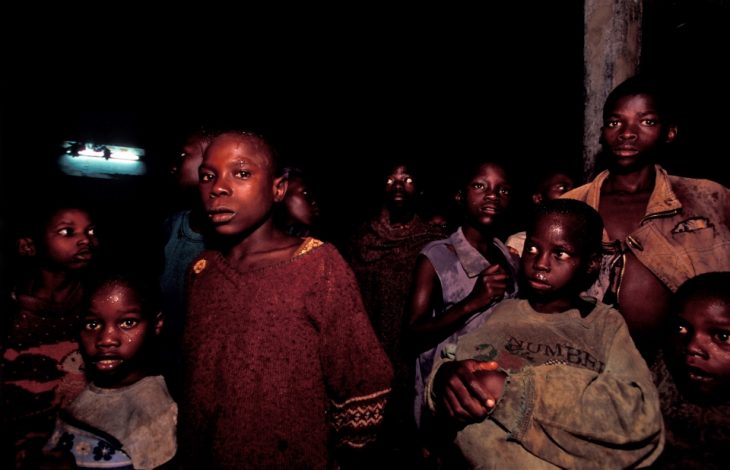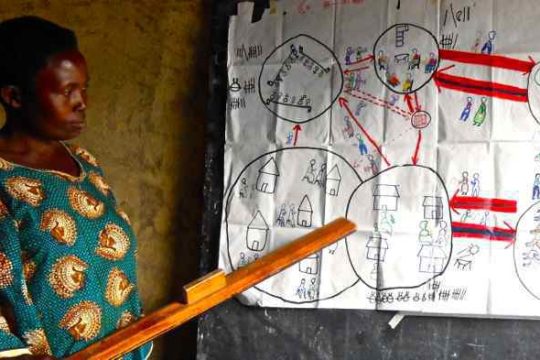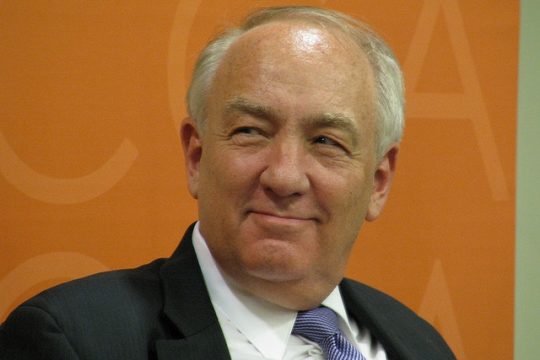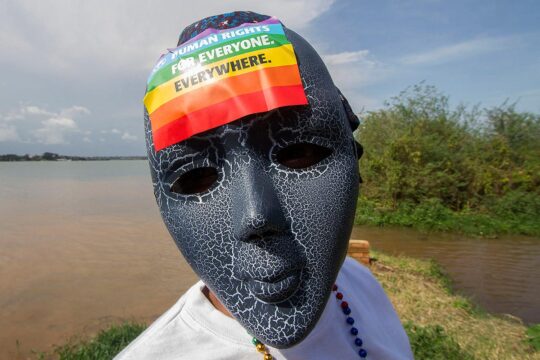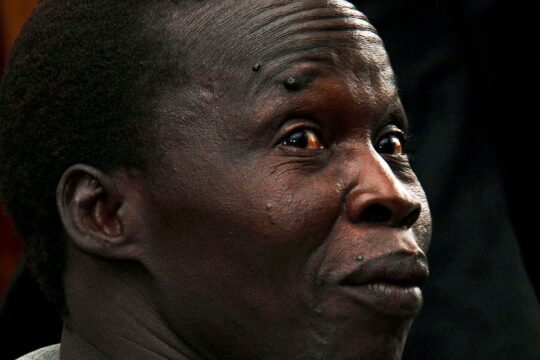Once again, the International Criminal Court (ICC) has rejected the idea of holding court hearings in the country directly concerned by the crimes it is dealing with. In the case of Ugandan Dominic Ongwen, the first and only senior commander of the brutal Lord’s Resistance Army (LRA) in the ICC’s custody, the pre-trial Chamber had recommended holding confirmation of charges hearings in Uganda, preferably in the northern town of Gulu near the scene of the main alleged crimes. But on Wednesday the ICC Presidency decided against this. The decision seems to have been based mostly on security and resource concerns.
After talks with Ugandan authorities, the ICC decided that political tensions surrounding February's presidential elections in Uganda "may have an adverse impact on the court".
"Today the presidency of the ICC decided that the confirmation of charges hearing in the case against Dominic Ongwen, scheduled for January 21, will take place in The Hague," the ICC said in a statement.
Although there were advantages in having the hearing in Uganda, including improving the ICC's image and bringing proceedings closer to affected communities, the "potential benefits... are outweighed by the significant risks," the ICC's presidency said.
It "noted particularly the possibility, expressed by Uganda itself, that political tensions may increase during an upcoming electoral period, especially during January 2016."
The court was also hamstrung by its planned move to a new building in The Hague in December, the court added.
Ugandan human rights activists are likely to be disappointed, although they also recognize the challenges of an in-situ hearing. “Holding the court proceedings in Gulu would contribute to bridging the gap between victims’ perceptions of justice and the ICC’s concept of Justice,” Ugandan human rights lawyer Kasande Sarah Kihika said in an interview on International Justice Monitor. “It could also enhance victims’ experience and satisfaction with the criminal justice process.”
The lawyer adds in the same interview that “holding an in situ ICC confirmation of charges hearing could catalyze momentum for domestic prosecutions of serious crimes (…). It could reinvigorate the government’s commitment to establish transitional justice measures that respond to victims’ quest for justice and address impunity.”
The Rome Statute, founding treaty of the ICC, stipulates that unless otherwise decided, the place of trial shall be the seat of the court in The Hague. However, it also empowers the ICC to sit elsewhere whenever it considers it desirable and in the interests of justice. This is not the first time there have been requests for in-situ hearings, notably in cases concerning Kenya, the Democratic Republic of Congo and Côte d’Ivoire, but they have never thus far been approved by the Court.
Child soldier
Prosecutors accuse Dominic Ongwen and his troops of at least 67 crimes against civilians fleeing the LRA's decades-long reign of terror. The LRA is led by Joseph Kony, also wanted by the ICC for war crimes and crimes against humanity.
The charges against Ongwen all relate to attacks carried out on refugee camps housing those forced to flee their homes in the bloody rebellion that started in northern Uganda in 1987.
More than 100 people, many of them babies and children, died in the attacks on four camps between October 2003 and June 2004.
Known as the "White Ant", Ongwen was one of the top commanders of the LRA, accused of killing more than 100,000 people and abducting 60,000 children.
The former child-soldier-turned-warlord was wanted by the ICC for almost a decade before he surrendered to US special forces in the Central African Republic in January after Washington offered a $5-million (4.4-million-euro) reward for his capture.
US troops have also been leading a military hunt in the Central African Republic to try to bring Kony to justice.
Born in 1975, Ongwen appeared for the first time before ICC judges shortly after he was transferred to The Hague in late January.



